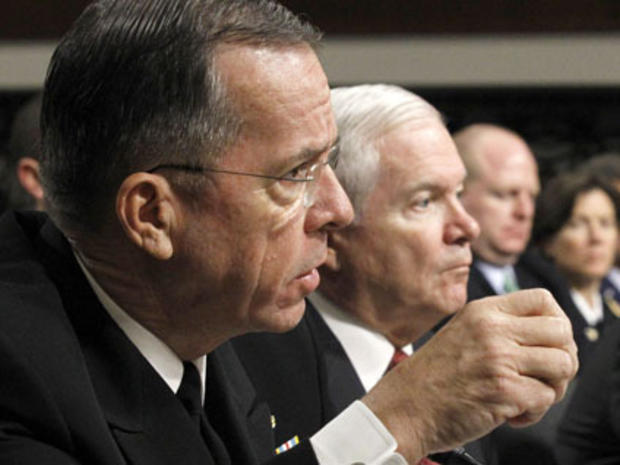Is Allowing Gays to Serve Openly Comparable to Racial Integration of the Military?
As members of the Senate Armed Services Committee today considered whether Congress should repeal the military's "don't ask, don't tell" policy, some asked whether repeal would be comparable to the integration of racial minorities and women into the armed forces.
Racial integration of the military took place over five years in the midst of the Korean War, Defense Secretary Robert Gates told the senators at a hearing on repealing the policy, which prohibits gays and lesbians from openly serving in the military. With respect to integrating racial minorities and women, Gates said that "these social changes in the military have not been particularly easy."
The military grappled with racial tension at least through the Vietnam War, Gates said -- and to this day, he noted, the armed forces has to contend with reports of sexual assault within its ranks.
"We are dealing with human beings here," Gates said. "I think the report [on repealing "don't ask, don't tell"] is honest in saying there will be some disruption."
Joint Chiefs of Staff Chairman Mike Mullen also acknowledged that the military has had its challenges with integration. But, he added, "Categorically, we are in a much better place as a military because those steps were taken when they were taken."
Defense Department general counsel Jeh Johnson, one of the leaders of the Pentagon survey on the impact of a possible repeal, stressed that "matters of sexual orientation and race are fundamentally different, which is why in this report we didn't push the integration chapter too hard."
What's Next in "Don't Ask, Don't Tell" Fight?McCain: Pentagon's "Don't Ask, Don't Tell" Study Asked the Wrong Question
He added, however, that he considered it relevant that "in the 1940's, some of our most revered heroes from the World War II period... predicted negative consequences for unit cohension if there was racial integration." Additionally, Johnson said he found in his research that the military actually surveyed personnel on the question of integration back then, and while the sample sizes were small, opposition was very high.
Yet, Johnson said, studies from the Korean War ultimately indicated that integrated units were just as cohesive as non-integrated units.
Additionally, Johnson said that racial integration folded a larger population into the military than does integration of openly gay service members. There were about 8 million service members back then, he said, and about 700,000 black soldiers. By comparison, today's military is about 1.47 million strong, and Army Gen. Carter Ham said that 2 to 3 percent of military personnel are thought to be gay (which would amount to about 400,000 service members).
Johnson added that the military was racially integrated before integration had been accepted in civilian society.
"By 1953, 95 percent of Army units were integrated, but buses in Montgomery were not," he said. "And so my assessment is that the opposition to racial integration then was much more intense than the opposition to gays serving openly today in the military."
"I've always felt that our nation is strongest and most secure when we pursue our nation's security consistently with our values to the best that we can," he said.
Independent Sen. Joe Lieberman of Connecticut, a strong advocate of repeal, said that procedurally, integrating gays and lesbians into the military is not comparable to the case of racial integration. President Harry Truman integrated the military by executive order -- a move Truman could take, Lieberman argued, because there was no law prohibiting him from doing so. The situation with "Don't Ask, Don't Tell," first passed by Congress in 1993, is different, he said.
"Congress has to take action to give the president essentially the same latitude that President Truman had in his time," Lieberman said.


